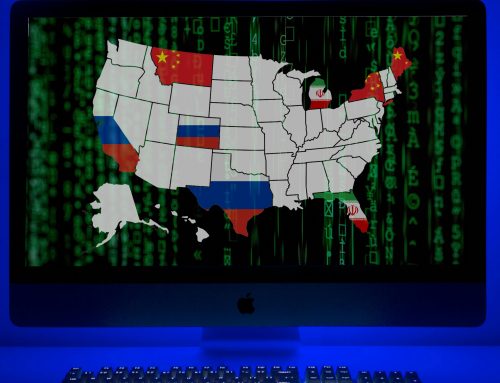In mid-2020, the Alliance for Securing Democracy convened a task force of 30 leading American national security and foreign policy experts to devise a national strategy for the United States to offset autocratic advances in non-military domains of competition. This report reflects the collective insights and recommendations of this bipartisan group. Not all members of the task force agree with every argument or recommendation, but the overall report reflects the general consensus to the best of the authors’ ability.
Executive Summary
The United States and other liberal democracies face a persistent asymmetric threat from authoritarian challengers who aim to reshape the global order in their
favor. Illiberal regimes use a wide range of tools across the political, economic, technological, and information domains to undermine democratic institutions
and alliances, prevent criticism of their own regimes and governance systems, and establish norms and standards favorable to autocratic rule. In the case of
digital information technology, these efforts go beyond shaping norms to controlling the infrastructure that transmits information itself. To date, democracies have been slow to adapt to this contest, allowing autocrats to seize the initiative by taking advantage of the openness of liberal systems.
Fortunately, the United States can regain the initiative in this emerging competition with authoritarianism—if it addresses its vulnerabilities, leverages its strategic advantages, and reframes the contest on its own terms. The United States faces an array of domestic challenges—political polarization, inequality and racism, erosion of traditional media, a growing tech-government divide, flawed and porous political influence systems, and impaired economic competitiveness—that threaten to undermine the United States’ competitive strengths. Autocrats can leverage these cleavages and constraints in the short-term, but in the long-term democratic characteristics confer tremendous strategic advantages. The United States’ advantages include a vibrant civil society, dynamic and competitive economy, innovative private sector, and robust network of alliances. Leveraging these strengths requires a national strategy to offset autocratic advances by seizing on the advantages of open systems, building resilience into democratic institutions, and exploiting the brittleness of authoritarian regimes. This Task Force report outlines the logic and contours of such a national strategy across four overlapping non-military domains.
Political Competition
A key asymmetry between democracies and authoritarian regimes is the ability of democratic governments to respond and adapt to citizens’ demands. Authoritarians seek to undermine this advantage by exploiting democracies’ openness, manipulating information, and penetrating permissive political influence systems. The United States is particularly vulnerable given its weak financial transparency laws and stark polarization. To build resilience against authoritarian interference, the United States must first improve its own democratic practices by strengthening key institutions and cultivating a culture of civic engagement. Democracies must also showcase the corruption and political repression of autocracies. To accomplish this, the United States should support efforts to expose kleptocracy abroad and work with allies to draw attention to authoritarian repression.
Economic Competition
Corrupt kleptocracies enrich loyalists at home while weaponizing corruption and unfair trade practices abroad. In this regard, democracies, which favor fair
competition and the rule of law, have a distinct longterm advantage. To shore up the sources of its strength, the United States must make strategic investments at home—including in infrastructure, education, and basic research—while also supporting innovation and development in key industries. At the same time, the United States should adopt a robust anti-corruption platform. This effort should begin with transparency and regulatory reform at home and extend to exposing authoritarian corruption abroad. Finally, working with allies and partners, the United States should call out the unfair and coercive economic practices of authoritarian states.
Technological Competition
Authoritarian states—most notably China—are investing heavily in the development of emerging technologies, many of which are both tools of repression and pathways to power. While the United States and other democracies maintain an edge in this space, their advantage is rapidly eroding. The United States should
work with other democracies to take a more active role in shaping global technology governance to ensure that norms, standards, and new technologies are conducive to democracy rather than corrosive to it. Investing in democracy-affirming technology and enacting societal guardrails on platforms will be essential to this effort. The United States must also ensure it remains an attractive destination for technological talent while preventing foreign theft of intellectual property.
Information Competition
The technologies, architectures, and norms of the Information Age are still in flux, and authoritarians are shaping them. Autocrats view information as a threat
to stability at home and a weapon that can be wielded abroad. Democracies, on the other hand, see open and trusted information as the foundation of a healthy
society. To compete in the information domain, democracies will need to build resilience to authoritarian interference without compromising the democratic
value of free expression. To do so, the United States should embrace media and digital literacy education, ensure that information architecture supports
democratic values, challenge authoritarian narrative dominance, and reinvigorate independent journalism, both at home and abroad. It should work with other
democracies to maintain a free and open Internet, and to construct data governance models rooted in democratic principles.
Recommendations
To regain its competitive edge in this multidimensional competition, the Task Force identified a number of recommendations for the United States. Although these proposals are specific to the United States, many are applicable to other democracies and could be broadly adopted or adapted. The Task Force recommends that the United States:
Protect and Strengthen U.S. Democracy and Competitiveness
- Reinvest in civil society by embracing civic education and service learning, provide robust funding for digital and media literacy education, establish a universal national service program, and reinvest in civic infrastructure.
- Reinvigorate the free press by encouraging investment in local and investigative journalism and supporting independent media in closed spaces abroad.
- Enact guardrails around online platforms by expanding user control of data and online experiences, strengthening transparency requirements and privacy protections, and promoting accountability and competition.
- Enhance financial transparency by ending anonymous shell companies, tightening restrictions for foreign company political activity, and enacting stronger disclosure requirements for foreign funding of non-profit organizations and media outlets.
- Improve political transparency by clarifying the definition of in-kind political contributions, tightening legal reporting requirements for offers of foreign assistance to campaigns, and strengthening campaign finance laws.
- Fortify election infrastructure by improving cybersecurity assistance and encouraging broad implementation of auditable, paper-based voting systems.
- Invest in strategic technologies and critical infrastructure by boosting funding for infrastructure development and deployment and increasing investments and incentives in critical technology areas like artificial intelligence.
- Attract and retain innovators by embracing a smart immigration policy to recruit and keep foreign talent in key industries and establishing scholarships to train the next generation of scientists and technologists.
- Protect critical technologies by strengthening the Committee on Foreign Investment in the United States, prioritizing combating intellectual property theft, and working with allies and partners to implement export controls for key technologies.
Adapt and Update Democratic Structures, Resources, Authorities, and Norms
- Integrate technology policy across government by establishing an integrated structure within the Executive Office of the President with a senior official coordinating technology policy across domestic, economic, national security, and foreign policy considerations, and establishing a Technology Directorate at the National Security Council.
- Build technical expertise in government through temporary exchange programs, technology scholarship programs, and reestablishing the Office of Technology Assessment.
- Construct new cross-sector connective tissue by enabling more agile technology acquisitions and coordinating more closely with academia.
- Streamline jurisdiction and improve oversight and coordination efforts by establishing a Foreign Malign Influence Center and standing up a new congressional committee with oversight of technology development and online platform regulation.
- Resource non-military tools through robust funding and holistic budgeting linked to a cross-cutting National Security Strategy.
- Expose malign activity by appropriately prioritizing the identification and public exposure of authoritarian interference efforts.
- Facilitate information sharing between government, tech companies, and researchers by establishing an independent Social Media Data and Threat Analysis Center.
- Revitalize the State Department’s technology expertise by establishing a Bureau of Cyberspace Security and Emerging Technology, as the bipartisan Cyberspace Solarium Commission recommended, to guide norm and standards-setting efforts.
- Develop new frameworks for data governance guided by the values of transparency, privacy, and free expression.
- Reimagine cyber and Internet governance by working with like-minded partners and allies to advance a governance model based on an open, transparent, and accessible Internet.
Leverage and Prioritize the United States’ Leading Advantages
- Seize the initiative in the information competition by executing a global campaign to expose the false promises of authoritarians while redoubling support for independent media and open access to information.
- Reinvest in alliances and international institutions by embracing multilateral democratic engagement to counter authoritarians.
- Leverage technology alliances to pool talent and resources, conduct joint research and development, collaborate on norm setting, and coordinate on investment screening.
- Prioritize engagement in standards-setting bodies to support the establishment of democracy-affirming global standards.
- Share information and coordinate unified responses with allies and partners to counter and deter authoritarian interference efforts.








